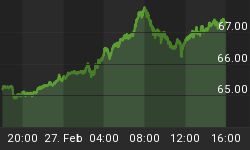A new leak has sprung from China’s bitcoin rumor pool. And while markets have grown resilient of such news, this new potential crackdown seems to have spooked miners.
China’s bitcoin mining scene is huge, accounting for over half of the world’s mining power, with giant Bitmain Technologies leading the way. Chinese miners enjoy cheap labor and electricity from small towns scattered around rural China. But is this gravy train coming to an end?
Initially reported on Reuters, a leak from a private meeting among officials from the People’s Bank of China will reportedly pressure local governments to regulate the energy usage of miners in order to scale back their production. In a separate report from Bloomberg, another unnamed source denied the claim.
Bitcoin veterans are no stranger to conflicting news coming from China, but it seems that some miners are looking for alternatives, and Canadian energy companies are looking to step up to meet the demand.
Quebec
Hydro-Quebec is in a unique position to court bitcoin miners. As Canada’s largest utility provider, the company is offering techies special deals to move data-centers or mining operations into the Great White North.
The utility giant is offering electricity costs of $0.0248 per kWh to data centers, and $0.0394 per kWh to cryptocurrency miners, 50 to 75 percent cheaper than comparable North American alternatives. With these huge savings, Hydro-Quebec is reportedly scrambling to keep up with demand.
Business development director of Hydro-Quebec, David Vincent, noted: “I have so much demand right now there’s no need for marketing. Pretty much every day I have a new one.”
Another spokesman went on to say that the company is already in advanced talks with over 30 mining companies looking to take advantage of the opportunity. While the company refrained from naming any particular company, Nishant Sharma, a spokesperson from Bitmain Technologies, noted that the company was in discussing the possibility of opening a mining operation in the province.
Hydro-Quebec is expecting that, within four years, miners will be using over 5 tWh of the province’s surplus hydro-electricity. The company’s goal? To invest in and expand their current operations, using increased revenue from new mining operations.
Quebec is not the only Canadian province looking to lure miners, however, Manitoba is also being courted by the industry.
Manitoba
Representatives of Chinese investors are flooding into the province, looking to capitalize on Manitoba’s cold temperature and cheap, green energy opportunities. Bruce Owen, spokesman from Manitoba Hydro, noted that the company has already received over 100 inquiries from potential cryptocurrency miners.
Though, even with the huge influx of interest, Manitoba Hydro is taking a cautious approach.
"The key difference lately has been the magnitude of the requests to establish dedicated bitcoin and cryptocurrency farms," said Owen.
"To put the potential consumption into perspective, the cryptocurrency requests coming into Manitoba Hydro recently are for the equivalent electric consumption of about 1,900 average Manitoba homes."
While Manitoba Hydro weighs its options, other industries are using their creativity to take advantage of the new crypto-craze.
Bruce Hardy, President of Myera Group, is using excess heat from a small bitcoin mining operation to maintain a comfortable temperature in his makeshift greenhouse in the rural municipality of St. Francois Xavier. The farm also includes a pool in which 800 Arctic Char live and breed. The nitrate-rich waste water is then recycled and fed to the plants in the greenhouse.
"It's all connected, much like Earth," said Hardy.
Vancouver
Boasting some of the lowest electricity costs in North America, Vancouver is another Canadian city quickly becoming a hotspot for crypto-mining.
Vancouver’s Hut 8 Mining Corp. announced a partnership with crypto-giant BitFury back in December, with the goal to build the largest mining operation in North America. The deal, which should be completed in 2018, will include a multi-level data center capable of over 60MW of output.
BitFury will be providing the hardware, software, and maintenance know-how for the $26 million operation.
Another looking to make its mark on the North American mining scene is HashChain Technology. The company’s primary focus is currently on mining Dash, though they are looking to expand into other cryptocurrencies in the near future. Patrick Gray, CEO of HashChain explains: “North America is one of the best places in the world for mining, thanks to low cost electricity, cool temperatures, and high-speed internet.”
While HashChain’s data center only came online in November 2017, the company is already making an aggressive push to expand its operations.
Between Bitmain and BitFury’s pivot to North America, and listed companies such as Hut 8 and HashChain Technologies taking a much greater role in the space, there may be a global shift in mining power taking place that could help to level the playing field in global markets.
By Michael Kern via Crypto Insider















